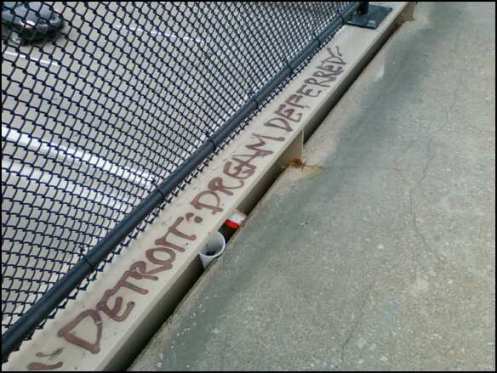Suffering and Definition
“It is the sea that makes the sailor,
And the land that shapes the sea.
I do not know yet what I am made of,
Or all I may someday be.
It is the wood that makes the carpenter,
It’s the very tools of his trade.
It is love that makes a lover,
And a cross that makes a saint.” – Rich Mullins, “The Breaks”
We are made what we are by what we are not: that is the meaning of definition. The sea is where the land is no longer, thus “the land shapes the sea”.
OK, so what makes me me? Well, it must be what I am not. This is why “a cross makes a saint”, because it is the saint’s suffering that makes him into who he is. Suffering is the margin of saintliness. The essence of the saint is life, and the essence of suffering is death – but this is precisely why saints must suffer. No human being could possibly recognize the Life, unless Life is defined by the reality of death. Every little death we die on earth has the potential to shape us (or rather, reshape us) into the form of God.
So we are defined by our suffering.
At least we should be. But consider the man (or woman) who flees from his suffering, who avoids it, who distracts himself from it. Once again, he is defined by what he is not: but this time it is not suffering that defines, but rather activity. Such a man is “bounded by activity”, perhaps bounded by work or by pleasure, but in truth no one is more passive than he. The world happens to him, not he to the world.
Personally, I am far too often fleeing from suffering, or fleeing from engaging myself in the suffering around me. The solution is not to “grin and bear it,” however, but to love. Lovers accept suffering, not for its own sake, but for the sake of the beloved. When I flee from pain and discomfort, I am committing a sin of apathy; I am not properly caring for those God has put in my life (including myself). Suffering, more often than not, presents me with an opportunity to love.
In Detroit, too, we have an opportunity. There is a reason that violence sometimes draws communities together; it gives us a common identity because we have a common enemy. We struggle not with flesh and blood, but with powers and principalities, powers and principalities that themselves are used by God to define us. “The wood makes the carpenter.” Each thing that resists us, forms us. What sort of fool of a carpenter would refuse a tree, however stubbornly the tree might defy him?

